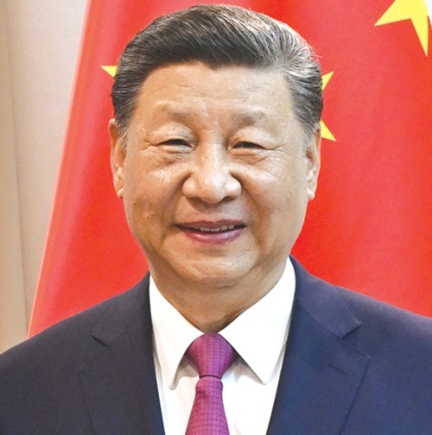The global South's cooperation on trade has been significantly boosted by China's international policy of win-win interest, directly benefiting African states.
Hence, the African Continental Union Consult (ACUC) wishes to extend a deep-hearted message of "thank you" to the People’s Republic of China’s (PRC).
The PRC's intention to drop tariffs on imports from African countries is not merely aspirational. It has become a reality.
As of June 2025, China has officially committed to eliminating all tariffs on imports from 53 African countries, covering 100 per cent of taxable products.
This represents the most comprehensive trade liberalisation package ever offered by a major economy to an entire continent, directly supporting the shared prosperity agenda and industrial growth across Africa.
This zero-tariff policy is projected to boost African GDP growth significantly through increased export revenues and job creation.
Unlike selective trade preferences, this comprehensive approach ensures that all African nations with diplomatic relations benefit equally, fostering continental economic integration.
This represents a complete departure from Western impositions of economic squeezing measures designed to frustrate economic growth in Africa.
The contrast is stark and measurable:
• Western Approach - Conditional aid, structural adjustment programmes and selective trade preferences that often tie African economies to dependency cycles.
• Chinese Approach: Unconditional market access, infrastructure investment and technology transfer without political conditionalities.
While some Western nations have increased trade barriers in recent years, China's zero-tariff commitment demonstrates a fundamentally different economic philosophy, one that prioritises mutual benefit over extractive relationships.
The Changsha Declaration
The recent meeting in Changsha, with the presence of 53 African states and the African Union, resulted in the China-Africa Changsha Declaration on Upholding Solidarity.
This declaration has called for the U.S. to resolve trade tensions through dialogue rather than punitive measures, demonstrating the need for constructive consultation over economic coercion.
This represents the largest multilateral endorsement of South-South cooperation principles in recent history, with all African nations except Eswatini —a testament to the broad continental support for this partnership model.
Infrastructure development
China's goodwill for Africa extends beyond trade to tangible infrastructure development in energy, rail, road and water management systems.
Energy Sector Achievements
• Ghana's Bui Dam project (400 MW capacity) was completed by Sinohydro Corporation in 2013
• Multiple hydroelectric projects across the continent are improving energy security
• Solar and renewable energy initiatives addressing power shortages.
Water resource optimisation
The Volta River projects in Ghana, with Chinese technical assistance, could maximise water resources for both irrigation and industrial development, to directly address Ghana's natural resource potential.
Youth empowerment
The push for skill training for youth in the agriculture and aviculture sectors.
Training programmes evidence
China trains approximately 10,000 African officials yearly in agricultural and development techniques.
• Youth Focus: Specialised programmes, such as the China Agricultural University Youth of Excellence Scheme, specifically target young African agricultural researchers.
Grassroots agricultural education programmes are helping smallholder farmers across African nations increase productivity, reduce import dependency and guarantee food sovereignty.
These programmes directly address unemployment challenges in impoverished South-South regional states through practical skill development rather than theoretical education.
Food security
• Many African nations import 60-80 per cent of their food requirements.
• Chinese agricultural cooperation programmes focus on increasing local production capacity.
• Technology transfer includes drought-resistant crops and efficient farming techniques.
Research consistently shows that food security directly correlates with political stability. Citizens with reliable food access are less likely to experience social unrest, with maintained sovereign peace.
Educational excellence
The sharing of best practices in educational spaces has measurable outcomes:
• Belt and Road Initiative educational exchanges have trained thousands of African professionals.
• Agricultural technology transfer programmes show documented yield improvements.
• Technical education partnerships in engineering and infrastructure management.
Chinese educational models, developed during China's own rapid development phase, offer more relevant lessons for developing nations than traditional Western academic approaches designed for already-developed economies.
Economic liberty through diversified partnerships
• China has become Africa's largest trading partner for 15 consecutive years.
• Chinese infrastructure investments exceeded $700 billion in Africa since 2013.
• Alternative financing mechanisms reduce dependency on Western financial institutions with restrictive conditionalities.
This China-Africa partnership model provides a replicable framework for South-South cooperation that other developing regions can adapt, challenging the traditional North-South dependency model that has characterised global economics for centuries.
Conclusion
The PRC's approach represents a fundamental shift toward genuine partnership rather than exploitation.
The recent tariff elimination, infrastructure investments and capacity-building programmes demonstrate that this is not merely diplomatic rhetoric but a comprehensive strategy for mutual development and shared prosperity.
The writer is the Chief Executive Officer of African Continental Union Consult (ACUC), Ghana.

